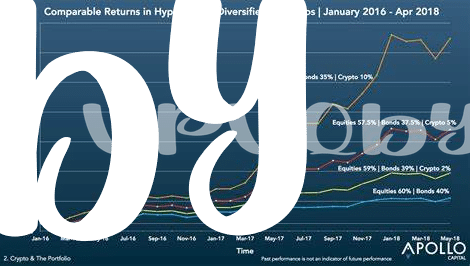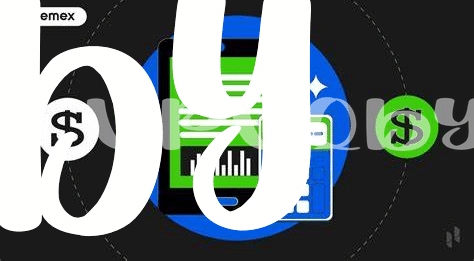Unveiling Bitcoin: the Dawn of Digital Money 💰

Imagine a world where your money doesn’t live in a bank, but instead, in a digital wallet, accessible only by you. That’s the revolutionary idea that brought Bitcoin into the spotlight. Invented in 2008 by an unknown person or group of people using the name Satoshi Nakamoto, Bitcoin introduced the world to a new type of money that doesn’t rely on governments or banks💰. Unlike the dollars or euros in your bank account, Bitcoin operates on a technology called blockchain. This tech allows Bitcoin to be both public, so everyone can see the transactions, and secure, making it really hard for anyone to cheat.
The magic of Bitcoin comes from its ability to let people send money over the internet directly to each other, without an intermediary like a bank. This idea was groundbreaking🌐! Now, anyone with an internet connection can join the Bitcoin network. Below is a simple breakdown of how Bitcoin compares to traditional banking:
| Feature | Bitcoin | Traditional Banking |
|---|---|---|
| Control | User-controlled | Bank/Government-controlled |
| Accessibility | Internet access required | Physical bank and approval needed |
| Global Use | Yes, universally | Limited by country and currency |
| Transaction Speed | Minutes to hours | Hours to days |
| Fees | Low to none | Often high |
This innovative approach to managing money has sparked excitement and curiosity worldwide, setting the stage for a digital financial revolution✨.
Why Traditional Banks Are Shaking in Their Boots 🏦
Imagine walking into a world where your money isn’t kept in a big, imposing building with large vaults, but rather in your digital pocket, accessible with just a few clicks. This is the reality Bitcoin is bringing to the table, leaving traditional banks to pace nervously. These banks, which have been the undisputed rulers of our financial lives, are finding their authority questioned. The freedom and control Bitcoin offers to everyday people mean that the need to rely on these financial institutions is diminishing. No longer do individuals have to face hefty fees for international transfers or wait days for transactions to clear; Bitcoin streamlines these processes, much to the chagrin of the old guard.
Within this evolving battlefield, the stakes are high for these banking giants. The rise of Bitcoin and other cryptocurrencies spells a seismic shift in how money is managed, threatening the very foundations of traditional banking systems. By cutting out the middleman, Bitcoin empowers individuals to be their own banks, directly challenging the age-old paradigm of financial control. This has stirred a mix of concern and outright fear among traditional banks, as they grapple with the reality that their long-held power over people’s finances is slipping through their fingers. For more insights into how digital currencies are changing the game, check out https://wikicrypto.news/decoding-the-legal-framework-for-bitcoin-nft-collaborations, where the evolution of financial sovereignty through cryptocurrencies is further explored.
Bitcoin Vs. Government Control: the Ultimate Showdown 👊

Imagine a world where your money isn’t just a number in a bank’s computer but something you truly own and control. This is what’s at the heart of the tug of war between Bitcoin and those in power. For years, governments and their central banks have held the reins, deciding how much money is worth and how it’s used. But with Bitcoin, the game is changing. This digital currency is like a wild stallion: no single person can control it. It travels across borders effortlessly, making it a headache for those trying to keep it in check. People now have a tool that promises a different kind of financial freedom, one where they’re not at the mercy of inflation or arbitrary decisions that can devalue their hard-earned money overnight. It’s this promise that pits Bitcoin as a formidable opponent against traditional control, offering a glimpse into a future where financial sovereignty is not just a dream but a reality for everyone. 🌍💰🔐
How Bitcoin Promises Financial Freedom for All 🌍

Imagine a world where you can manage your money without having to pass through layers of bank verifications or government scrutiny. That’s the allure of Bitcoin, a digital currency that operates on a technology called blockchain. Unlike traditional money, Bitcoin isn’t controlled by any single entity. This means no more waiting for bank approvals for your transactions or worrying about your account being frozen. For people living in countries with unstable currencies or oppressive financial systems, Bitcoin offers a beacon of hope. It’s like having a bank in your pocket, one that you’re the boss of. You can send and receive money anywhere in the world, at any time, without needing permission. Plus, with the advent of services built on Bitcoin, such as the innovative features explored in the potential of the bitcoin lightning network regulatory outlook, transactions are becoming faster and cheaper, inviting even more people to this financial revolution. However, it’s not just about bypassing traditional banking; it’s about a fundamental shift towards economic empowerment and inclusive financial systems where everyone, everywhere, has the chance to thrive.
The Hurdles on the Road to Cryptocurrency Domination 🚧
Imagine a world where digital coins change the way we think about money. Now, as awesome as this sounds, the path isn’t all sunshine and rainbows. First off, let’s chat about understanding these digital coins. It’s like learning a new language for many people, which can be pretty tricky. Then, there’s the issue of keeping your digital money safe. Unlike a physical wallet, if someone hacks your digital wallet, you might not get your money back. And let’s not forget about laws. Different places around the world have different views on digital coins, making it tough for everyone to agree. Plus, the value of digital money can jump up and down like a bouncy ball, which can be nerve-wracking. Here’s a simple look at these bumps in the road:
| Hurdle | Description |
|---|---|
| Understanding | Learning about digital coins can be complex. |
| Security | Keeping digital money safe from hackers is a big worry. |
| Laws and Regulations | Different rules around the world make it tricky to use universally. |
| Volatility | The value of digital coins can change rapidly, making it unpredictable. |
But hey, overcoming these hurdles is part of the adventure, right? With every challenge faced, the path to digital coin domination becomes a little clearer. 🚀🌐
Can Bitcoin Secure a Future of Financial Sovereignty? 🔐

In the midst of a digital revolution, Bitcoin emerges not just as a new kind of money but as a beacon of hope for those dreaming of financial sovereignty. Imagine a world where your savings can’t be devalued at the whim of government policies, where transactions can cross borders as freely as storms cross skies, and where your financial destiny rests securely in your own hands. This dream is at the heart of Bitcoin’s promise. Yet, questions swirl around its ability to truly deliver on this promise. The path Bitcoin treads is strewn with challenges from regulatory hurdles to questions about its widespread adoption. Nevertheless, the resilience and adaptability Bitcoin has shown so far suggest a future where it could play a pivotal role in reshaping our financial landscape. For those keen to delve deeper, understanding how Bitcoin maintains its integrity through technological marvels like public ledgers is crucial. A thorough exploration can be found in the comprehensive guide on the role of public ledgers in bitcoin’s transparency regulatory outlook. As we stand at the crossroads, the journey towards financial sovereignty with Bitcoin is not just possible but filled with potential, marking a bold stride towards a future where financial freedom is not just a privilege for the few but a fundamental right for all. 🌍🔐🚀
